Oil filters are one of the most crucial components in any vehicle’s engine system. They protect the engine by removing impurities like dirt, metal particles, and unburned fuel from the circulating oil, ensuring that only clean oil lubricates the engine’s moving parts. Without them, your engine would be at serious risk of damage due to these contaminants. Whether you’re driving in cold winter months or navigating city traffic, a reliable oil filter plays a key role in maintaining your car’s performance and longevity.
But did you know there are several types of oil filters, each with its own specific features and benefits? From the full-flow oil filter, which is commonly found in most cars, to the more specialized magnetic and centrifugal filters, each one is designed for particular tasks within the engine system. For car owners and automotive enthusiasts, understanding how these filters work can make a huge difference when it comes to maintenance and engine care.
Why Oil Filters Matter: Engines naturally produce dirt and combustion residues. Without oil filters, these particles would circulate and cause engine wear and performance issues over time.
Now, let’s dive into the different types of oil filters and explore how each one works.
What is an Oil Filter?
An oil filter is a small but vital part of your car’s engine. It removes harmful particles from the oil, such as dirt, metal shavings, and sludge. This keeps your engine clean, allowing it to function smoothly. In older engines, before oil filters became standard, oil changes were frequent because contaminants quickly built up in the engine, causing wear and tear.
Today, thanks to advancements in oil filtration technology, the lifespan of engines has greatly improved, and so has their performance. Regular oil filter maintenance can save you from expensive repairs down the line, and it’s essential for the longevity of your engine.
- Pro tip: Always check your vehicle’s user manual to find out how often you should change your oil filter. This ensures optimal engine performance and reduces the risk of premature engine wear.
Types of Oil Filters
Oil filters are a vital part of every engine, helping ensure that clean oil flows through the system. Understanding the different types of oil filters can help you choose the best one for your engine, depending on the vehicle, driving conditions, and climate. Below, we’ll break down the most common oil filters, explaining what makes each type unique.
a. Full-Flow Oil Filter (Primary Oil Filter)
The full-flow oil filter is the most commonly used filter in cars and trucks. Its job is simple: it filters all the oil that passes through the engine. This is crucial because any impurities in the oil can harm engine components, leading to wear and tear. In colder climates, where oil thickens when the engine is cold, full-flow filters work efficiently by ensuring the oil flows freely even in cold starts.
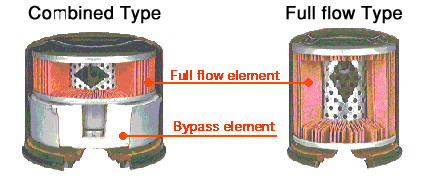
Here’s why they are essential:
- Cleans all the oil before it circulates through the engine.
- Prevents oil thickening during cold starts, ensuring smooth operation.
- Common in passenger vehicles due to their reliability and efficiency.
Expert Tip: If you live in an area with extreme cold, using a full-flow oil filter is essential because it ensures the oil keeps moving smoothly, even when temperatures drop.
b. Cartridge Oil Filter
The cartridge oil filter is slightly different. Instead of a spin-on canister, it’s often mounted in an upright position, which makes it easy to inspect without draining the oil. This type of filter comes in metal or fiber options. Fiber filters are popular because they are environmentally friendly and recyclable.
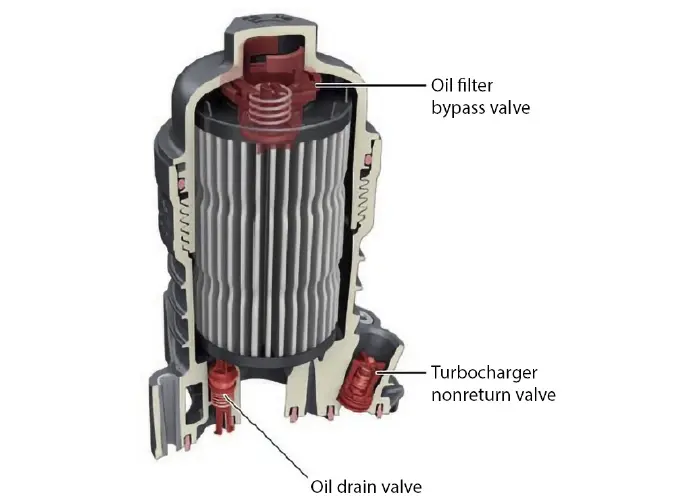
- Easier to inspect: Unlike traditional filters, you don’t need to remove oil for inspection.
- Eco-friendly: Fiber-based versions can be recycled, making them better for the environment.
Personal Anecdote: I’ve seen many mechanics recommend cartridge filters for hybrid cars. They’re easy to check during routine service without the need to change the oil, saving time and resources.
c. Spin-On Oil Filter
The spin-on oil filter is probably the one you’ve seen the most if you’ve ever changed oil yourself. It consists of a steel canister that houses a paper filter element. What makes spin-on filters so popular is how simple they are to install. You can remove and replace them with minimal tools, making them ideal for DIY oil changes.
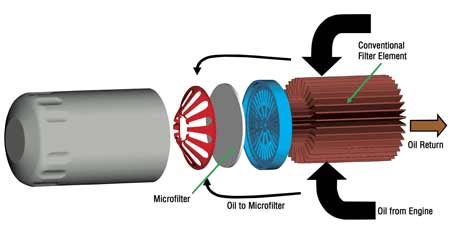
- Simple installation: Just spin it off and replace with a new one.
- User-friendly: No complex tools required, great for home mechanics.
Why It’s Popular: Most car owners appreciate spin-on filters for their ease of use. If you enjoy working on your own vehicle, this is probably the oil filter you’d prefer.
d. Secondary (By-Pass) Oil Filter
Some vehicles are equipped with a secondary oil filter, also known as a by-pass filter. This type doesn’t filter all the oil in the engine; instead, it filters a small portion to catch additional contaminants that the full-flow filter might have missed. This is an extra layer of protection for your engine, especially in high-performance vehicles or vehicles driven under extreme conditions.
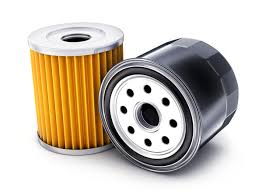
- Additional filtration: Catches contaminants that might slip through the primary filter.
- Extends oil life: Helps keep the oil cleaner for longer.
Pro Tip: If you drive in dusty environments or put your vehicle under heavy strain (like towing), a secondary oil filter can provide that extra peace of mind by offering superior filtration.
e. Spinner Oil Filter
The spinner oil filter uses centrifugal force to separate contaminants from the oil. Some can generate forces up to 2,000 times that of gravity, meaning even the smallest particles are pulled out of the oil. These are particularly useful in heavy-duty engines, such as in trucks or industrial equipment, where keeping the oil as clean as possible is essential for long-term operation.
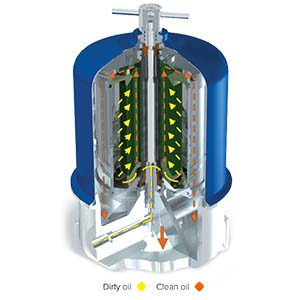
- Uses centrifugal force: Excellent for capturing tiny contaminants.
- Ideal for heavy-duty engines: Common in trucks and industrial machinery.
Expert Insight: I’ve often seen spinner oil filters used in fleets of trucks where engine cleanliness is critical for maximizing vehicle lifespan. If your engine takes a lot of strain, a spinner filter is a worthy investment.
f. Magnetic Oil Filter
Lastly, there’s the magnetic oil filter. This type uses magnets to capture metal particles from the oil. Unlike other filters, it doesn’t capture dust or grime, but it’s incredibly effective at keeping metallic debris out of your engine. These filters don’t need to be replaced, only cleaned regularly, making them low-maintenance.
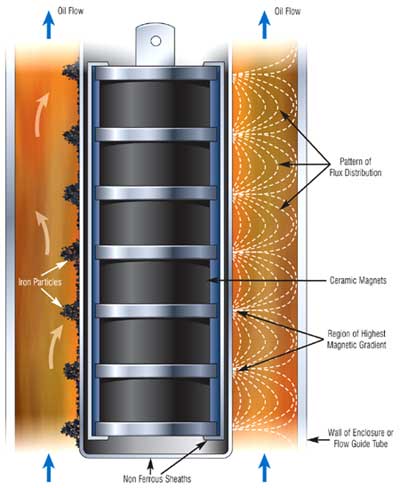
- Captures metal particles: Uses magnets to remove harmful debris.
- No need to replace: Just clean it periodically to maintain efficiency.
Interesting Fact: If you drive a vehicle with high mileage or older engines, a magnetic filter can be a great addition because it helps reduce wear caused by small metal particles circulating in the oil.
Here’s a comparison chart for the different types of oil filters, highlighting their key features, advantages, disadvantages, and ideal applications:
| Oil Filter Type | Key Features | Advantages | Disadvantages | Ideal Application |
|---|---|---|---|---|
| Full-Flow Oil Filter (Primary Filter) |
– Filters all the engine oil – Common in passenger vehicles – Quick oil flow for cold starts |
– Efficient for cold climates – Ensures continuous lubrication – Simple design |
– Limited filtration (misses finer particles) |
– Everyday passenger cars – Cold climates |
| Cartridge Oil Filter |
– Replaceable filter element – Can be made of metal or fibre – More environmentally friendly |
– Easy inspection without removing oil – Recyclable materials |
– More complex to replace – Slightly higher cost |
– Modern engines – Eco-friendly vehicles |
| Spin-On Oil Filter |
– Steel canister with paper element – Easy to replace (screw-on design) |
– Quick DIY installation – Widely available – Minimal tools needed |
– Metal canister is non-recyclable – Larger waste footprint |
– Most passenger vehicles – DIY maintenance |
| Secondary (By-Pass) Oil Filter |
– Filters a small fraction of the oil – Works alongside full-flow filter |
– Extends engine oil life – Removes finer particles – Additional engine protection |
– Requires regular monitoring – Higher maintenance cost |
– Heavy-duty vehicles – Trucks, construction equipment |
| Spinner Oil Filter |
– Uses centrifugal force to filter – Can generate forces 2,000x gravity |
– Very efficient at removing fine contaminants – No moving parts (low wear) |
– More expensive – Not common in regular vehicles |
– High-performance engines – Industrial machinery |
| Magnetic Oil Filter |
– Uses magnets to trap metallic particles – Secondary filter |
– No need for replacement – Simple to clean – Effective for metal particles |
– Does not remove non-metal contaminants – Requires regular cleaning |
– Vehicles exposed to heavy metallic debris – Performance engines |
Summary of Oil Filter Types
Here’s a quick breakdown of the oil filters:
- Full-Flow Oil Filter: Filters all oil, great for cold weather.
- Cartridge Oil Filter: Easy to inspect, eco-friendly.
- Spin-On Oil Filter: Simple installation, great for DIYers.
- Secondary (By-Pass) Oil Filter: Adds extra filtration for severe conditions.
- Spinner Oil Filter: Uses centrifugal force, ideal for heavy-duty engines.
- Magnetic Oil Filter: Captures metal debris, low-maintenance.
Each of these filters serves a specific purpose, and choosing the right one depends on your vehicle and driving needs. Understanding how they work ensures that you keep your engine running smoothly and extend its life by using the appropriate oil filter.
Functions of Oil Filters
Oil filters play a crucial role in maintaining the health of an engine by removing harmful contaminants and ensuring only clean oil circulates through the engine’s vital parts. Here’s a breakdown of the essential functions that oil filters serve:
1. Contaminant Removal
Over time, engines accumulate dirt, metal particles, and other debris that can damage the engine’s internal components. These contaminants come from:
- Dust and dirt entering through the air intake.
- Metal shavings from the engine’s moving parts.
- Combustion residues such as oil carbons and soot.
The primary function of an oil filter is to trap and remove these contaminants, preventing them from circulating through the engine. This not only keeps the oil clean but also protects the engine from wear and tear caused by abrasive particles. Think of the oil filter as a gatekeeper, allowing only clean oil to pass through while blocking harmful debris.
2. Consistent Engine Performance
Engines rely on clean oil to operate smoothly. Dirty or contaminated oil can clog small oil passages and lead to inefficient lubrication. When the engine does not receive proper lubrication, friction increases, and engine performance drops. A well-functioning oil filter ensures that the engine always receives fresh, clean oil, which:
- Reduces friction between moving parts.
- Helps the engine run more efficiently.
- Extends the engine’s lifespan by minimizing wear.
For example, I once serviced a Toyota Camry that had been running with a clogged filter for months. The owner complained of sluggish performance and excessive engine noise. After replacing the oil filter and the oil, the car’s performance noticeably improved, with smoother acceleration and less noise. This is a simple but effective example of how maintaining the oil filter directly impacts engine performance.
3. Prevention of Oil Thickening
Oil tends to thicken over time due to the accumulation of soot and combustion byproducts. Thickened oil struggles to flow freely through the engine, especially in cold weather. Many oil filters come equipped with thinning holes or are designed to regulate oil flow, ensuring the oil remains fluid and reaches all parts of the engine even during cold starts. This is especially important for those living in colder climates where oil can become thicker and less effective. Without proper filtration, thick oil can clog passages, leading to engine overheating or damage.
4. Protection of Moving Parts
Oil’s primary job is to lubricate the engine’s moving parts, such as the crankshaft, camshaft, and valvetrain. These parts operate at high speeds and temperatures, making them highly susceptible to damage from contaminants. By filtering out impurities, the oil filter ensures these components receive pure, uncontaminated oil, thereby reducing wear and prolonging their lifespan.
Consider this scenario: in a high-performance engine, even a small amount of metal debris can cause scoring on the cylinder walls or bearing surfaces. Over time, this can lead to costly repairs or even total engine failure. A reliable oil filter acts as the first line of defense, safeguarding these vital components.
5. Prevention of Engine Dry Starts
Most modern oil filters feature an anti-drain-back valve, which prevents oil from draining out of the filter when the engine is turned off. This is critical because, during startup, engines are most vulnerable due to the lack of oil pressure. Without oil circulating quickly, friction between moving parts can cause immediate damage. By keeping oil inside the filter, the anti-drain-back valve ensures oil is available as soon as the engine starts, reducing wear during this critical period.
Key Takeaways:
- Oil filters are essential in protecting your engine by filtering out contaminants.
- They ensure smooth engine performance by providing clean oil for proper lubrication.
- Modern oil filters prevent oil thickening and engine dry starts, which are particularly important in colder climates.
Here’s a simple diagram showing how oil flows through an engine, demonstrating the importance of an oil filter:
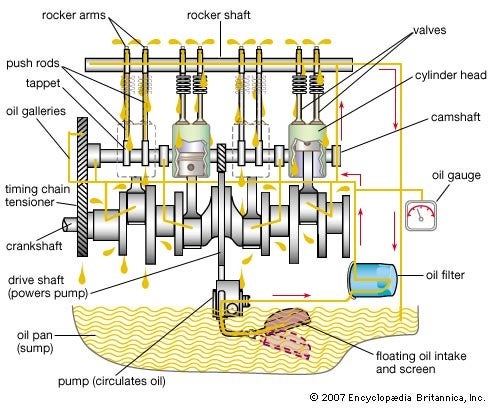
In my experience, maintaining a clean oil filter is one of the simplest ways to ensure long engine life. I always tell my customers: “Your engine’s health depends on the quality of its oil, and the oil filter is the heart of that process.”
Remember to check and replace your oil filter regularly—whether it’s a spin-on type or a cartridge filter—because even the best oil can’t do its job if it’s filled with grime.
How Oil Filters Work
Oil filters may seem like simple devices, but their role in an engine is crucial. Without them, engines would wear out quickly due to the constant presence of contaminants in the oil. Let’s break down how oil filters work and why they’re such essential components in vehicles, large machines, and other equipment that rely on engines.
The Flow of Oil Through the Filter
Oil filters are designed to let engine oil flow through them, but they trap dirt, debris, and other harmful particles along the way. Here’s how the process happens:
- Oil Entry: When the engine is running, oil is pumped from the oil pan and enters the filter through several small holes around the base.
- Filtration Process: The oil flows through the filtering material, which is usually made of paper or synthetic fibers. This material is fine enough to trap contaminants like dust, metal shavings, and carbon deposits.
- Clean Oil Exit: After passing through the filter, the cleaned oil flows out through a central hole and back into the engine to lubricate the moving parts.
This process happens continuously whenever the engine is on, ensuring that the oil stays as clean as possible to prevent damage to the engine components.
Anti-Drain-Back Valve
Most modern oil filters have a special feature called an anti-drain-back valve. This valve is essential because it stops the oil from draining back into the oil pan when the engine is off. If the oil drains out of the filter, the next time the engine starts, it would run without proper lubrication for a few seconds until the oil is pumped back up. This is called a “dry start,” and it can cause serious wear on the engine.
The anti-drain-back valve is usually made of rubber and sits near the small entry holes of the oil filter. When the engine is off, the valve closes, keeping the oil inside the filter. When the engine starts, the oil pressure pushes the valve open, allowing oil to flow through the filter.
Bypass Valve for Cold Starts
In very cold weather, engine oil can become thick, making it hard to pass through the filter quickly. To ensure the engine still gets enough oil, many filters are equipped with a bypass valve. This valve opens when the oil is too thick or when the filter is clogged, allowing unfiltered oil to bypass the filter and go straight to the engine. While unfiltered oil isn’t ideal, it’s better than no oil at all. This feature is especially important in areas with cold winters, where engines are often started in low temperatures.
Here’s a simple diagram to visualize the working process of an oil filter:
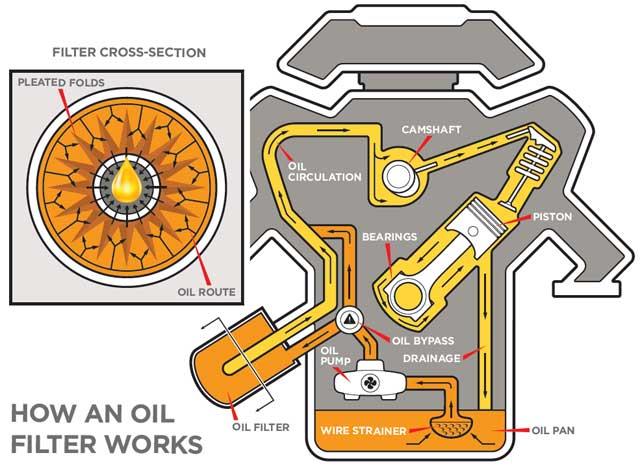
The Role of Secondary Oil Filters
In some vehicles and machinery, there’s a secondary oil filter, often called a bypass filter. While the primary filter cleans the bulk of the oil, the secondary filter takes care of finer contaminants that the primary filter might miss. Bypass filters help extend the life of both the oil and the engine by providing extra protection. This is especially useful in high-performance engines or equipment that operates in harsh conditions, such as construction vehicles.
The Hidden Expert Tip: Maintain Your Oil Filters
One often-overlooked aspect of engine maintenance is keeping oil filters clean and replaced on time. After all, filters only work effectively if they’re not clogged. Most mechanics recommend replacing the oil filter every time you change your oil. This is typically around every 3,000 to 5,000 miles for most cars, though some modern vehicles can go longer. If you drive in dusty conditions or put a lot of strain on your engine (like towing heavy loads), you might need to replace your oil filter more frequently.
Expert Anecdote: As an auto mechanic, I’ve seen engines suffer serious damage because the owner neglected to replace the oil filter. One of the worst cases I’ve encountered was a customer who hadn’t changed their filter in over 15,000 miles! The filter was completely clogged, and unfiltered oil was circulating through the engine, causing internal wear. It ended up being a very costly repair. Don’t let this happen to you—always stick to your vehicle’s maintenance schedule!
Conclusion: The Quiet Hero of Your Engine
The oil filter may not be the flashiest part of an engine, but it plays a critical role in keeping everything running smoothly. Without it, engines would be quickly damaged by dirt and debris, leading to expensive repairs or even engine failure. By understanding how oil filters work and making sure to replace them regularly, you can protect your vehicle’s engine and keep it performing at its best for years to come.
For more tips on engine maintenance or to learn about the different types of oil filters, check out our related articles below:
- How to Choose the Right Oil for Your Car in Winter
- Top 5 Signs Your Oil Filter Needs Replacing
- The Difference Between Full-Flow and Bypass Oil Filters
Advantages of Oil Filters
Oil filters are essential for any engine. They play a critical role in keeping the engine running smoothly and extending its lifespan. Let’s explore the key advantages of using oil filters in your vehicle.
1. Efficient Removal of Contaminants
One of the main benefits of oil filters is their ability to remove impurities from the engine oil. When your engine runs, it generates dirt, metal shavings, dust, and other particles. These contaminants can get into the oil and damage engine parts. A well-functioning oil filter traps these particles, ensuring that only clean oil circulates through the engine.
Expert Tip: Regularly inspect your oil filter, especially if you drive in dusty environments or if your engine is older. Keeping the filter clean will enhance its efficiency and prevent contaminants from building up in the oil.
2. Prolonging Engine Life
Engines have many moving parts, such as the camshaft, pistons, and valves. These parts need to be well-lubricated to avoid friction and wear. When your oil filter is doing its job, it ensures that these moving parts receive clean oil, reducing the risk of wear and tear. Over time, this prolongs the life of your engine, saving you from costly repairs.
- Key Components Protected:
- Camshaft
- Pistons
- Valves
- Crankshaft
3. Improved Engine Performance
When the oil is clean, your engine runs smoother and more efficiently. An oil filter ensures that the oil maintains its ideal viscosity and lubrication properties, which allows the engine to operate at optimal levels. A dirty or clogged oil filter can slow down the engine’s performance, cause overheating, or even lead to complete engine failure.
“I’ve seen engines that suffered severe damage due to clogged oil filters. A simple filter replacement could have saved them.”
4. Enhancing Fuel Efficiency
Engines that run on clean oil tend to be more fuel-efficient. By reducing friction and ensuring that all engine parts are well-lubricated, oil filters contribute to better fuel consumption. Clean oil allows the engine to perform with less effort, leading to lower fuel usage and, ultimately, cost savings at the pump.
- Why This Matters:
- Reduces friction
- Keeps oil flowing smoothly
- Prevents engine strain
5. Maintaining Optimal Oil Pressure
Another advantage of oil filters is that they help maintain consistent oil pressure within the engine. Without an oil filter, contaminants could block oil passages and reduce the flow of oil to critical engine components. This could lead to a drop in oil pressure, resulting in inadequate lubrication. The right filter prevents this, ensuring smooth operation.
Note: Low oil pressure can be a sign of a faulty or clogged oil filter. If you notice fluctuating oil pressure, check your filter first!
6. Contributing to Reduced Emissions
Oil filters also play a role in reducing harmful engine emissions. When your engine is running on clean oil, it burns fuel more efficiently. This results in less unburned fuel being emitted through the exhaust, which means fewer pollutants released into the environment.
7. Extending Oil Life
High-quality oil filters help extend the life of your engine oil. Since they remove impurities, your oil stays cleaner for longer periods, meaning you can go further between oil changes. This saves you both time and money, as you won’t have to change your oil as frequently.
Expert Advice for Oil Filter Maintenance
- Inspect Regularly: Make it a habit to check your oil filter during routine maintenance.
- Replace on Time: Don’t wait until the filter is clogged. Follow your vehicle’s manufacturer guidelines for filter replacement intervals.
- Choose Quality Filters: Opt for high-quality oil filters that are designed for your vehicle. Cheap or incorrect filters may fail to protect your engine adequately.
Oil filters may seem like small, simple parts, but their benefits are crucial for the overall health of your engine. Ensuring that your filter is functioning properly can make a huge difference in how your vehicle performs, how long it lasts, and even how much fuel it consumes. So, next time you’re under the hood, don’t forget to give your oil filter the attention it deserves!
“As someone who’s been in the automotive industry for over 13 years, I’ve seen the damage that neglecting an oil filter can do. Trust me, it’s worth the effort to stay on top of your oil filter maintenance.”
Disadvantages of Oil Filters
While oil filters are essential for maintaining engine health and performance, they also have several disadvantages that car owners and mechanics should consider. Understanding these drawbacks can help you make informed decisions about oil filter maintenance and replacement.
1. Clogging and Blockages
One of the most significant issues with oil filters is the potential for clogging. Over time, filters accumulate contaminants like dirt, metal particles, and unburned fuel. When the filter becomes too clogged, it restricts oil flow, which can lead to several problems, including:
- Reduced lubrication: If oil can’t circulate freely, the engine components may not receive adequate lubrication, leading to increased wear and tear.
- Engine damage: In severe cases, clogged filters can cause engine components to overheat or even fail completely.
To avoid these issues, it is crucial to replace the oil filter regularly as part of routine maintenance. The general rule of thumb is to change your oil filter every time you change your engine oil, which is typically every 3,000 to 5,000 miles, depending on your vehicle and driving conditions.
2. Quality Variations
Not all oil filters are created equal. Some manufacturers produce low-quality filters that may not effectively remove all contaminants. This can allow harmful particles to circulate within the engine, potentially causing damage over time. Here are a few points to consider:
- Brand Reputation: Always opt for filters from reputable brands known for quality. Poorly designed filters can lead to leaks, reduced oil flow, and less effective filtration.
- Cost vs. Quality: Cheaper filters might save you money upfront, but they can end up costing more in repairs if they fail to protect your engine adequately.
3. Limited Capacity
Oil filters come with a limited capacity for holding contaminants. As they fill up, their ability to filter effectively diminishes. When the filter reaches its limit, it can no longer trap additional particles, resulting in:
- Increased wear on engine components: Without proper filtration, abrasive materials can damage critical parts like pistons and bearings.
- More frequent replacements: You may find yourself needing to replace filters more often than expected, which can increase overall maintenance costs.
4. Maintenance Costs
While oil filters are generally affordable, there can be hidden costs associated with their maintenance. These include:
- Labor costs: If you’re not comfortable changing the oil filter yourself, you’ll need to pay for labor at a shop.
- Specialized filters: Some vehicles require premium or specialized filters, which can be significantly more expensive than standard options.
In my experience as a mechanic, I’ve seen customers overlook the importance of using the right oil filter. When the wrong filter is used, it can lead to compatibility issues that further complicate engine maintenance and repair.
5. Environmental Impact
Disposing of used oil filters can pose environmental challenges. Many filters are made from materials that are not environmentally friendly, and improper disposal can contribute to pollution. Here are some best practices for disposal:
- Recycle: Many auto parts stores offer recycling programs for used oil filters.
- Local regulations: Be aware of local regulations regarding hazardous waste disposal to ensure compliance.
6. Compatibility Issues
Using the wrong type or size of oil filter can lead to serious compatibility issues. This might result in:
- Engine damage: A filter that doesn’t fit properly can cause oil leaks or lead to insufficient oil pressure.
- Performance problems: An incompatible filter may not provide the level of filtration necessary, leading to increased wear on the engine.
To avoid these issues, always refer to your vehicle’s manual for the correct oil filter specifications. As a best practice, I recommend cross-referencing the filter number with reputable online databases or manufacturer guidelines.
Expert Tip
As an automotive expert with over 13 years of experience, I always emphasize the importance of choosing the right oil filter and maintaining it properly. In my workshop, I often remind customers that an oil filter is not just an accessory; it’s a critical component that plays a pivotal role in the overall health of their engine. Investing in a quality oil filter and staying on top of maintenance can save you from costly repairs down the line.
Applications of Oil Filters
Oil filters are essential components found in a variety of machines and vehicles, serving a critical role in maintaining the quality of lubricating oil. Their primary function is to remove contaminants and impurities, ensuring that only clean oil circulates through the engine or system. Below, we will explore the main applications of oil filters across different industries and types of machinery.
Automotive Engines
In the automotive world, oil filters are a fundamental part of engine maintenance. They help keep the engine running smoothly by removing dirt, metal particles, and other debris from the engine oil. Common types of oil filters used in cars, trucks, and motorcycles include:
- Spin-On Oil Filters: These are popular due to their ease of use and quick replacement. A typical car owner can change these filters without specialized tools, making regular maintenance more accessible.
- Cartridge Oil Filters: These filters are often found in modern vehicles. They are designed to be recyclable and can easily be checked without having to remove all the oil from the engine.
Regularly replacing the oil filter in your vehicle is crucial. A clean filter helps maintain optimal oil pressure, ensuring that your engine components receive adequate lubrication. This, in turn, can prevent costly repairs and extend the life of your vehicle.
Industrial Machinery
In industrial settings, oil filters are equally important. Heavy machinery, such as generators, construction equipment, and agricultural machinery, relies on high-quality oil filters to keep lubricating oils clean. Here’s how oil filters benefit industrial machines:
- Protection Against Wear and Tear: Contaminated oil can lead to premature wear of engine components. Oil filters catch dirt and particles, safeguarding the machinery’s intricate parts.
- Increased Efficiency: Clean oil leads to smoother operations and improved efficiency. This is particularly vital for machinery that operates under heavy loads or in harsh environments.
For example, in the agricultural industry, tractors equipped with high-quality oil filters can operate longer hours without the need for frequent oil changes. This not only saves time but also reduces operational costs.
Marine Engines
Marine engines, found in boats and ships, also depend on oil filters to function correctly. Saltwater and other environmental factors can introduce various contaminants into the engine oil, making effective filtration essential. Oil filters in marine applications help by:
- Preventing Corrosion: Marine oil filters are designed to combat the corrosive effects of saltwater, helping to protect engine components from rust and deterioration.
- Ensuring Reliability: In the maritime industry, engine failure can be catastrophic. Reliable oil filtration ensures that engines run smoothly, which is crucial for safety and efficiency.
Aircraft Engines
In aviation, oil filters play a vital role in maintaining the performance and safety of aircraft engines. Clean oil is crucial for high-performance engines that operate under extreme conditions. Here are some key points regarding their application in aircraft:
- Safety and Performance: Oil filters help maintain the cleanliness of engine oil, which is critical for preventing engine failures during flight. Any impurities can cause severe damage and jeopardize the safety of the aircraft.
- Specialized Filters: Aircraft use specialized oil filters that can withstand high pressure and temperature variations. These filters are rigorously tested to ensure they meet strict aviation standards.
Power Generation
In power generation, oil filters are essential for safeguarding the engines of generators and turbines. The clean oil ensures optimal performance and extends the life of these critical systems. The benefits include:
- Preventing Contaminant Build-Up: Regularly changing oil filters in generators helps prevent the build-up of sludge and harmful particles that can impair performance.
- Cost Efficiency: Investing in quality oil filters can lead to significant savings in maintenance costs by reducing the frequency of repairs and replacements.
Summary
In summary, oil filters are crucial across various industries, from automotive to aviation. They ensure that engines operate efficiently, prolonging their lifespan and reducing maintenance costs. Whether in cars, industrial machinery, marine vessels, or aircraft, the right oil filter can make a significant difference in performance and reliability.
Expert Advice
As an automotive expert, I have seen firsthand the difference a good oil filter can make. In one instance, a customer came in complaining about engine performance issues. After inspecting the vehicle, I discovered a clogged oil filter that had been neglected for too long. A simple replacement led to a noticeable improvement in performance and oil pressure. This experience highlights the importance of regular maintenance.
For anyone maintaining machinery or vehicles, remember that oil filters are not just an accessory; they are a vital part of your engine’s health. Regular inspections and timely replacements can save you from significant headaches and costs in the long run.
Choosing the Right Oil Filter
Selecting the right oil filter for your vehicle is essential for ensuring optimal engine performance and longevity. With various types of oil filters available, understanding their specific applications and benefits will help you make an informed choice. Here’s a breakdown of key factors to consider when choosing the right oil filter.
Factors to Consider
- Engine Type and Size
- Different engines have unique requirements. For instance, high-performance engines often benefit from high-quality filters that can handle greater oil flow and filtration efficiency.
- It’s important to consult your vehicle’s owner manual or a trusted mechanic to find the specific filter type that is compatible with your engine.
- Climate
- In colder climates, oil can thicken, affecting its ability to flow freely. Choosing a filter that can handle these temperature changes is crucial.
- For example, full-flow oil filters are generally recommended for cold starts, as they ensure sufficient lubrication quickly.
- Driving Conditions
- If you frequently drive in harsh conditions, such as stop-and-go traffic or off-road environments, investing in a high-quality filter can protect your engine from increased wear and tear.
- Filters designed for heavy-duty use often have enhanced filtration capabilities to handle more contaminants.
Types of Oil Filters to Consider
- Full-Flow Oil Filters: The most common type, ideal for most passenger vehicles. They effectively filter all the oil that circulates through the engine.
- Cartridge Oil Filters: These are often used in modern engines. They have a replaceable element that fits into a fixed housing, making them more environmentally friendly.
- Spin-On Oil Filters: Known for their ease of installation and replacement, they are popular among DIY enthusiasts.
- Bypass Oil Filters: Ideal for heavy-duty applications, they provide additional filtration and can extend the life of your engine oil.
Maintenance Tips
- Regular Inspection: Check your oil filter regularly for signs of wear, leaks, or clogs. This simple step can help you catch potential issues early.
- Replacement Schedule: Follow the manufacturer’s recommendations for replacement intervals. Generally, it’s advisable to change your oil filter every time you change your engine oil.
- Choose Quality Filters: Investing in high-quality oil filters from reputable brands can make a significant difference in performance.
Personal Advice from an Expert
In my 13 years as an auto mechanic specializing in the Toyota brand, I have seen firsthand how choosing the right oil filter can enhance engine longevity. I recall a customer who frequently drove in mountainous terrain. By upgrading to a high-performance oil filter designed for rugged conditions, we significantly reduced the engine wear that typically accompanies such driving habits.
Additionally, I recommend always keeping an eye on the oil filter’s condition, especially if you notice any changes in engine performance or oil pressure. A slight decrease in pressure can indicate a clogged filter, which, if left unaddressed, could lead to more serious engine problems.
Summary
Choosing the right oil filter is about understanding your vehicle’s specific needs and how different filters perform under varying conditions. By considering factors like engine type, climate, and driving conditions, you can select a filter that enhances your engine’s performance and longevity. Regular maintenance and opting for high-quality filters are essential steps in protecting your engine and ensuring smooth operation.
This structured approach to selecting an oil filter helps demystify the process, ensuring that you are equipped with the knowledge needed to make an informed decision. By following these guidelines, you can protect your engine and keep it running smoothly for years to come.
Frequently Asked Questions (FAQ) about Oil Filters
1. What is the primary function of an oil filter?
The main function of an oil filter is to remove contaminants, dirt, and debris from engine oil, ensuring clean oil circulates through the engine, preventing wear and damage to engine components.
2. How often should I replace my oil filter?
Typically, you should replace your oil filter every time you change your oil, which is usually every 3,000 to 7,500 miles, depending on your vehicle and driving conditions. Always follow your vehicle manufacturer’s guidelines.
3. What happens if I don’t change the oil filter?
If you don’t change your oil filter regularly, it can become clogged, reducing oil flow to the engine. This can lead to engine damage, reduced performance, and eventually engine failure.
4. Can I clean and reuse an oil filter?
Most oil filters, such as full-flow and spin-on types, are designed to be replaced, not reused. However, magnetic oil filters can be cleaned and reused since they don’t trap non-metallic contaminants.
5. What type of oil filter is best for cold climates?
Full-flow oil filters are recommended for cold climates because they allow oil to flow quickly even during cold starts, ensuring proper engine lubrication.
6. Are all oil filters the same?
No, oil filters vary in size, design, and filtration capabilities. Full-flow, cartridge, spin-on, magnetic, and by-pass oil filters all serve different purposes and are suited to different engine types and conditions.
7. How do I know which oil filter to use for my car?
Consult your vehicle’s owner manual or check with a professional mechanic. You can also use the vehicle’s make, model, and year to find the correct oil filter online or at an auto parts store.
8. What’s the difference between a full-flow and a by-pass oil filter?
A full-flow oil filter filters all the oil that circulates through the engine, while a by-pass filter filters a small portion of the oil to catch finer contaminants. By-pass filters are usually used in heavy-duty or high-performance applications.
9. Can using the wrong oil filter damage my engine?
Yes, using an incorrect oil filter can result in poor oil flow or inadequate filtration, which may lead to engine damage or reduced performance.
10. Do high-performance engines need special oil filters?
Yes, high-performance engines often require filters that can handle greater oil flow and provide more efficient filtration, such as spinner or by-pass oil filters, to ensure optimal engine protection under demanding conditions.
11. Is there a difference between regular oil filters and synthetic oil filters?
Synthetic oil filters are designed to work better with synthetic oils. They often have finer filtration media and can last longer, which is ideal for synthetic oil’s extended change intervals.
12. Why is the anti-drain-back valve important in oil filters?
The anti-drain-back valve prevents oil from draining out of the filter when the engine is off. This ensures oil is available immediately upon start-up, reducing engine wear during cold starts.
13. What are the signs that my oil filter needs replacing?
Some signs include a drop in oil pressure, unusual engine noises, or dirty exhaust smoke. However, it’s best to replace the filter as per the recommended schedule before problems arise.
14. Do magnetic oil filters work?
Yes, magnetic oil filters are effective at capturing metallic debris from engine oil. However, they cannot filter out non-metal contaminants like dust or sludge, so they are often used as secondary filters.
15. Is there an environmentally friendly oil filter option?
Cartridge oil filters with replaceable elements are more environmentally friendly since only the filter media is replaced, and the housing can be reused, reducing waste.
16. Can I use any oil filter with synthetic oil?
Not all oil filters are compatible with synthetic oil. Some standard oil filters might not handle the longer intervals and higher flow rates associated with synthetic oils. It’s recommended to use synthetic-compatible oil filters, which are designed for the demands of synthetic lubricants.
17. What is a bypass valve in an oil filter?
A bypass valve allows oil to flow around the filter element if it becomes clogged or during cold starts when oil is thicker. This prevents engine starvation by ensuring oil still reaches the engine even if the filter is blocked.
18. Why do some oil filters come with a pressure relief valve?
The pressure relief valve ensures that if the oil filter becomes blocked or oil is too thick (during cold starts), oil can bypass the filter and still reach critical engine parts, avoiding potential damage due to oil starvation.
19. What’s the difference between OEM and aftermarket oil filters?
OEM (Original Equipment Manufacturer) filters are made by the same company that manufactured the original part for your vehicle, ensuring a perfect fit and performance. Aftermarket filters, while generally cheaper, vary in quality. It’s essential to choose a reputable brand for reliable filtration.
20. What is the lifespan of an oil filter?
The lifespan of an oil filter depends on the type of filter, driving conditions, and the type of oil used. In general, most filters last for one oil change cycle, but some high-end or synthetic-compatible filters may last for up to 10,000 miles or more.
21. What is a high-efficiency oil filter?
High-efficiency oil filters are designed to capture smaller particles and offer better overall filtration than standard filters. They are often used in high-performance engines or with synthetic oils for superior engine protection.
22. Can oil filters affect fuel efficiency?
Yes, a clean and efficient oil filter contributes to better engine performance, which can improve fuel efficiency. A clogged or dirty oil filter forces the engine to work harder, which can decrease fuel efficiency.
23. How do I dispose of used oil filters?
Used oil filters contain residual oil and must be disposed of properly. Many auto parts stores and recycling centers accept used filters for proper recycling. Do not throw them in regular trash as they are considered hazardous waste.
24. Are premium oil filters worth the extra cost?
Premium oil filters often use better filtration materials, capture smaller particles, and last longer than standard filters. If you’re using synthetic oil or drive in extreme conditions, a premium filter may offer added protection and be worth the extra cost.
25. Do older vehicles require different oil filters?
Older vehicles may require different types of oil filters based on their engine design and technology. It’s important to use filters that match the specific requirements of older engines, as they may have different filtration needs compared to modern vehicles.
26. Can I extend my oil filter’s lifespan?
It’s not recommended to extend the oil filter’s lifespan beyond the manufacturer’s specifications. While some high-performance filters may last longer, running a filter beyond its intended use can result in oil contamination, clogged filters, and engine damage.
27. What should I consider when buying an oil filter?
When purchasing an oil filter, consider the following factors:
- Vehicle make and model: Ensure compatibility.
- Driving conditions: Tough driving conditions may require a more robust filter.
- Oil type: Synthetic oils often require compatible filters.
- Filter brand: Stick with reputable brands to ensure quality and performance.
28. Why do oil filters have different micron ratings?
Micron ratings refer to the size of particles the oil filter can capture. A lower micron rating means the filter captures smaller particles, providing finer filtration. High-performance or synthetic oil filters often have lower micron ratings for better protection.
29. Are oil filters necessary for every type of engine?
Yes, oil filters are essential for every internal combustion engine, whether in a car, truck, motorcycle, or machinery. Even some non-combustion engines, like those in power generation, rely on oil filters to ensure clean oil circulation and optimal performance.
30. Can I replace my oil filter without changing the oil?
While it’s technically possible to replace the oil filter without changing the oil, it’s not recommended. Oil filters should be replaced with every oil change to maintain proper engine health and prevent contamination of fresh oil with leftover contaminants.
Conclusion
Oil filters are an essential component in maintaining the health and performance of internal combustion engines. Understanding the types, functions, and applications of oil filters can help vehicle owners make informed decisions about their maintenance routines. When engines run, they generate contaminants—dirt, metal shavings, and unburned fuel—that can harm critical components if left unchecked. Oil filters effectively trap these impurities, ensuring that only clean oil circulates within the engine.
Key Takeaways:
- Types of Oil Filters: Different oil filters, such as full-flow, cartridge, spin-on, secondary, spinner, and magnetic filters, serve unique functions and are suited for various applications. Each filter type has its benefits and specific uses, making it important for users to choose the right one for their engine.
- Functions and Working Principle: Oil filters play a vital role in contaminant removal, maintaining engine performance, preventing oil thickening, and protecting moving parts. Understanding how they work—by filtering oil and employing mechanisms like anti-drain-back valves—helps in grasping their significance in vehicle maintenance.
- Advantages vs. Disadvantages: While oil filters provide numerous advantages, such as enhancing engine longevity and improving fuel efficiency, they also have limitations. Clogged filters can restrict oil flow, and poor-quality filters may allow harmful particles to circulate, highlighting the importance of regular maintenance and choosing high-quality products.
- Applications Across Industries: Oil filters are not limited to automotive engines; they also play critical roles in industrial machinery, marine engines, aircraft engines, and power generation systems. Their broad applicability underscores their importance in various fields.
As an automotive expert with years of experience, I’ve seen firsthand the impact that a well-maintained oil filter can have on an engine’s performance. In my early days as a mechanic, I once neglected to replace the oil filter in my own car during a routine maintenance check. The result was an engine that ran poorly and developed several issues over time. This experience taught me the importance of not only regular oil changes but also ensuring that the oil filter is always in good condition.
In conclusion, investing time and effort into understanding and maintaining oil filters is crucial for anyone who values their vehicle’s performance and longevity. Regular inspections, timely replacements, and the choice of the appropriate filter type can save you from costly repairs down the line. As you continue your journey in automotive care, remember that clean oil is a key ingredient to a healthy engine.
Expert Advice:
- Always refer to your vehicle’s manual for the recommended oil filter specifications.
- Consider factors such as driving conditions and climate when selecting an oil filter.
- Regularly check your oil filter during oil changes and replace it as needed to ensure optimal performance.
By prioritizing oil filter maintenance, you can ensure that your engine runs smoothly and efficiently, ultimately enhancing your driving experience.

Author: Frank Jenkins
Frank Jenkins – Family Car Expert and Safety Advocate
Frank Jenkins, steering you towards safer and smarter family driving. Based in: New York, New York, USA
About Me
Greetings from New York City! I’m Frank Jenkins, your navigator in the world of family vehicles and automotive safety. With over 15 years of experience as an automotive writer and safety consultant, I focus on what matters most to families on the go. Through rigorous testing and detailed research, I ensure that your next family car is not only comfortable and stylish but also packed with the latest safety features.
Contact Information
Topics of Interest
- Family-Friendly Car Reviews
- Vehicle Safety Systems
- Child Passenger Safety
- Road Trip Planning and Car Entertainment
Memberships
More About Frank
Short Bio: Frank Jenkins has become a household name for parents seeking advice on the best and safest cars for their families. His reviews are infused with a parent’s concern and an engineer’s precision. Education: Bachelor of Science in Automotive Technology from the New York University Qualifications: Certified Child Passenger Safety Technician (CPST) Languages: English (Native), French (Intermediate) Previous Roles:
- Safety Feature Columnist for Family Wheels Magazine
- Technical Advisor for Safe Car Campaigns
- Host of “The Safe Family Road Trip” Podcast
Fun Fact: Frank once organized a cross-country road safety workshop, visiting over 50 cities in 30 days.
Interactive Features
- Safety First with Frank: A forum dedicated to discussing and sharing best practices for family road safety.
- Frank’s Philosophy: “The best family memories are made in cars that put safety above everything else.”
- Your Stories: A section for readers to share their family road trip experiences and car-related anecdotes.
Featured Content
Newest Articles:
- “The Ultimate Guide to Family Cars in 2024”
- “Innovations in Car Safety: What Families Need to Know”
Highlighted Content:
- “Minivan or SUV: The Great Family Debate Resolved”
- “Child Seats 101: Choosing the Right One for Your Car”
Recommended Reads:
- “The Road to Safety: How Cars Have Become Safer for Children”
- “Entertaining Your Kids on the Road: Tips and Tricks”
Multimedia Spotlight:
- Podcast: “Drive Time Family” – Discussions on making family travel safer and more enjoyable
- Video Series: “Car Seat Clinics” – Demonstrations on proper car seat installation and usage
Editorial Team & Collaborations
Frequent Co-authors:
- Emily Chen, Urban Driving Specialist
- Marcus O’Reilly, Off-Road Adventure Guru
Editorial Staff Overview: A team of dedicated writers and safety experts committed to helping families make informed decisions about their vehicles. Editorial Guidelines: We are steadfast in providing transparent and practical advice that prioritizes the well-being of all passengers.
Journey With Me
For reliable reviews, safety advice, and the best in family automotive, hit the road with Frank Jenkins at oilforcar.com

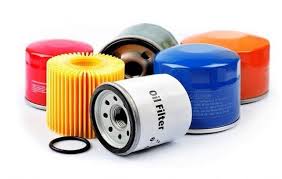

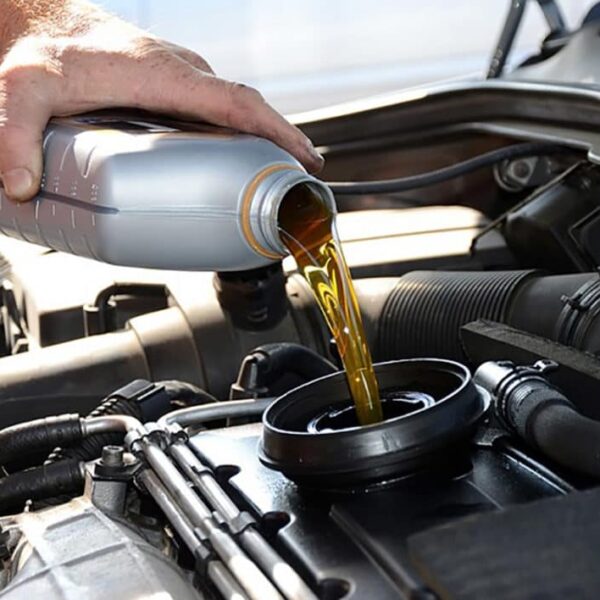


Pingback: 2-Stroke vs 4-Stroke Engines: Understanding Key Differences and Oil Choices - Oil for Car – Car Oil Reviews, Guides, & Car Tips